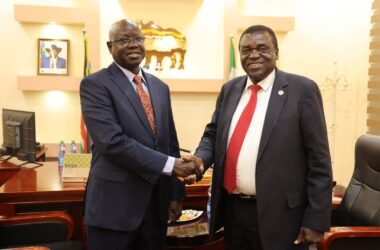By Bida Elly David
A timeline, earlier announced by the government to deploy the first batch of graduated unified forces as per Implementation of transitional security arrangements has since slipped off without action.
South Sudan government had declared it would commence deployment of the first batch between the last week of June and first week of July, to pave way for training of the second phase of the unified forces.
Despite approval of SSP 3.6 billion to facilitate the deployment of the first batch of the necessary unified forces, the National Transitional Committee (NTC) continues to grumble over lack of funding money.
Besides, the arms embargo slapped on South Sudan by the UN Security Council has also been blamed responsible for derailing deployment of the graduated unified forces.
Until now, the second week of July almost comes to an end without any signs of proximity to implementation of the proposed security arrangements.
However, President Salva Kiir Mayardit chipped in his 12th Independence Anniversary speech to the nation that internal differences were impeding the implementation of the security arrangements.
The President said that despite the impediments, preparations were in place for the deployment of first phase and training of the second batch of the unified forces.
“The leadership of the security sector and the joint defense forces are ironing out differences on the mid-level command structure in the organised forces,” the president said.
According to the President much of the work has been done in the area, with an agreement reached in the command structure.
The head of state also disclosed that all necessary procurement and logistical arrangements were in place to guarantee the graduation of phase two of the unified forces.
The parties to the Revitalized Agreement on Resolution of Conflict in the Republic of South Sudan (R-ARCSS) signed on 3 April 2022, agreed to unify the security command structure.
The deal allows for the integration of armed opposition commanders and forces from the Sudan People’s Liberation Movement/Army In Opposition (SPLM/A IO) and South Sudan Opposition Alliance (SSOA) into the South Sudan People’s Defense Force (SSPDF).
The deal is important because the security sector in the country will finally be managed under one command structure, with President Kiir being the Commander-in-Chief, deputized by Dr. Riek Machar.
According to the deal, the opposition commanders would have been integrated into the armed forces within a week. This was to be followed by graduation and deployment of unified forces to be implemented within a period not exceeding two months.
According to chapter two of the R-ARCSS, the training and redeployment of the necessary unified forces should have been completed in the first eight (8) months of the pre-transitional period.
However, it was delayed for a long time as training of forces underwent difficult logistical challenges including shortages of food, water, medicine and other needs.
Dr. Moses John, a nonviolent action and peacebuilding civil society activist said the agreement on unification of security command structures, graduation and deployment of unified forces are significant steps towards the political, security and economic stability of South Sudan.
He added timely implementation of the security deal, trust deficit between the political leaders and the political will to fully implement the agreement could still be a challenge.
According to Dr. Moses, despite the delays in the implementation of the R-ARCSS, the peace deal remains a window of opportunity to transform the governance system of South Sudan.,
He said the peace deal will also transform the security architecture, economic and financial management institutions that can deliver the needed social, and development services to the people.




